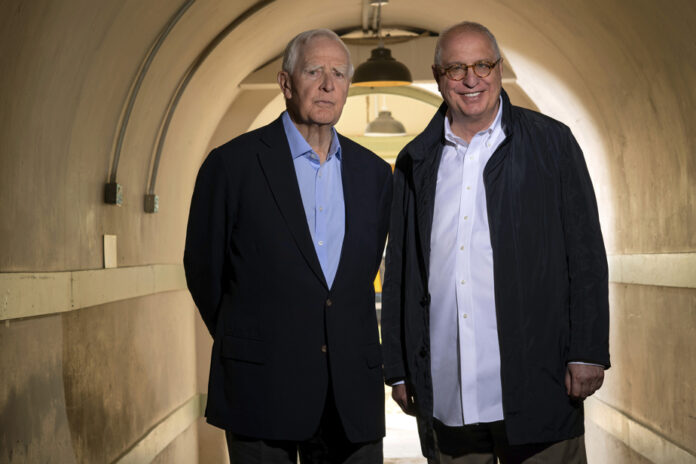(Paris) His last speech, in front of the camera, a year before his death: the master of the British spy novel John le Carré tells his story, with almost no filter, in a documentary co-produced by two of his sons.
Signed by Oscar-winning American documentary filmmaker Errol Morris (The Fog of War), John le Carré: The Pigeon Tunnel – also the title of his memoir published in 2016 – is released Friday on Apple TV.
This project launched in 2019 is the result of “happy circumstances”, tells AFP Simon Cornwell, one of the four sons of the novelist who died in 2020.
“A friend introduced us to Errol, who had the idea of doing something around our father. He happened to be an admirer of her work himself. The machine started up quite quickly,” he explains.
Filled with extracts from television and cinema adaptations of his work, the film is interspersed with an interview with the author of The Spy Who Came in from the Cold. “For him, it was a good time to talk and look back,” his other son, Stephen Cornwell, told AFP.
But what no one predicted was that this would be the final testimony of the novelist born David Cornwell, whose last novel, The Spy Who Loved Books, was published posthumously in 2021.
“His death completely changed the dynamic of the film, because it became his testament,” observes Stephen Cornwell.
The novelist with more than 60 million copies sold worldwide often appears moved, sometimes his voice choked with emotion, despite the posture of a commentator detached from his life.
“It’s an image of our father that we had never seen,” assures his son Simon.
Like when he talks about his mother, Olive Gassy, who left home when he was a child. From her, he only inherited a suitcase, the one she took when she fled and which symbolizes, in his eyes, “the only proof” of this event.
It’s an event he “never really talked about,” says his son Simon. “Even within the strict confines of the family.”
He also returns to his studies at Oxford, without ever revealing how he was recruited by MI6, then to the Kim Philby affair, the British double agent who revealed the cover of many of his compatriots to the KGB. This revelation ended his career in the secret service.
With difficulty, he also evokes the Stanley Mitchell episode and the denunciation, in the midst of the Cold War, of his communist comrades at Oxford. “Of course it was horrible. I betrayed Stanley,” he says in the documentary. But “someone had to do it,” he continues, before adding that his “friend” was “on the wrong side of history.”
“Are you sure you were on the right side? », asks Errol Morris. “Of course not,” replies the writer, before pausing for several seconds, visibly moved. “I think this is the moment in the film where he is really uncomfortable,” Stephen analyzes.
“He’s never shown such vulnerability. It wasn’t something he let on,” adds Simon, for whom the film also shows his “humanity and the fact that he loved people, that he lived in the present.”
The other interesting aspect of the film is that it looks back on his creative process. “One thing he didn’t really talk about,” according to Stephen. “He was a modest person and it made him uncomfortable to talk about it.”
Another destabilizing subject: his love and extramarital life, which fueled a recent biography. “I’m not here to talk about my sex life,” John le Carré responds laconically.















